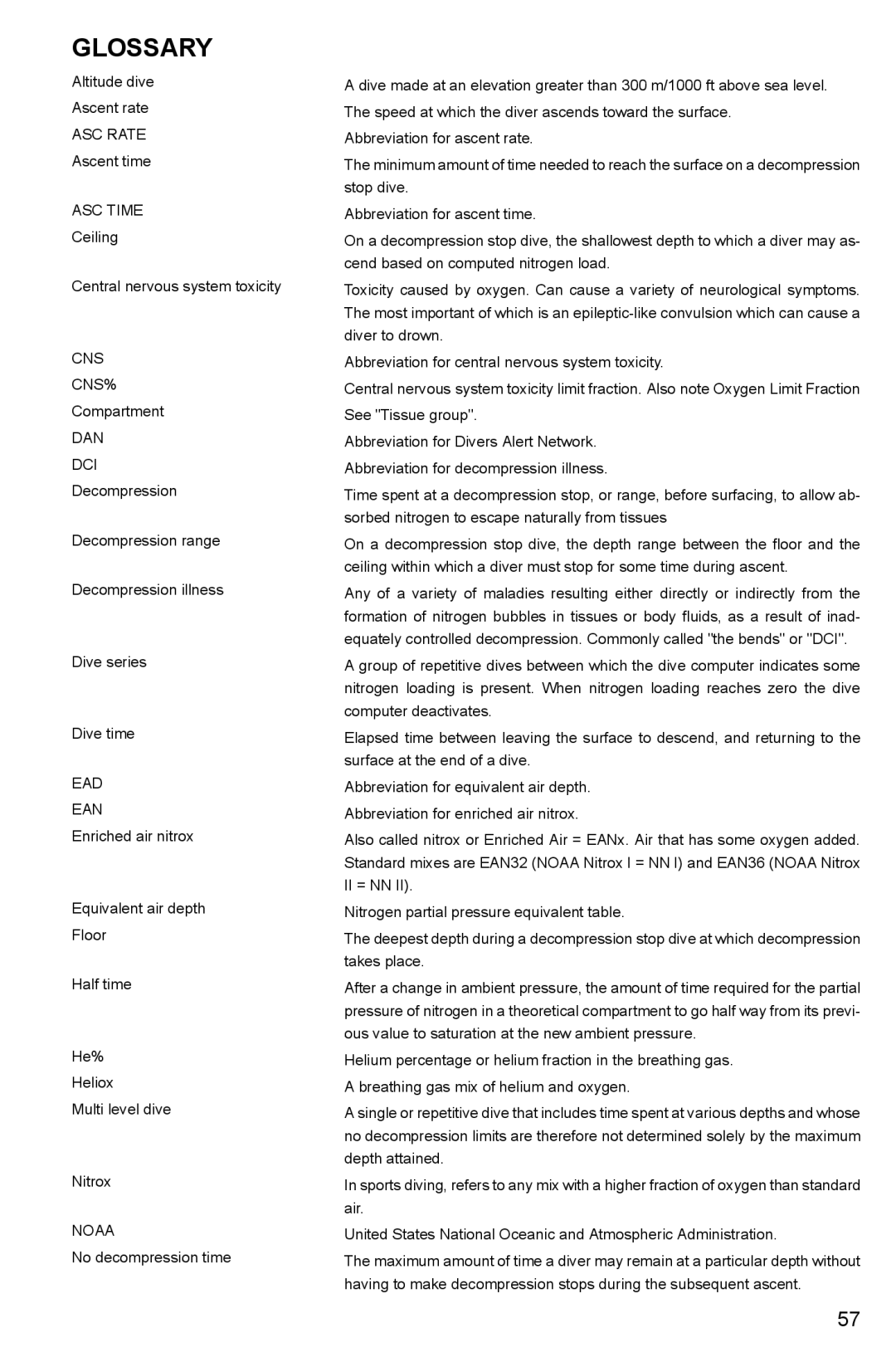GLOSSARY
Altitude dive
Ascent rate
ASC RATE
Ascent time
ASC TIME
Ceiling
Central nervous system toxicity
CNS
CNS%
Compartment
DAN
DCI
Decompression
Decompression range
Decompression illness
Dive series
Dive time
EAD
EAN
Enriched air nitrox
Equivalent air depth
Floor
Half time
He%
Heliox
Multi level dive
Nitrox
NOAA
No decompression time
A dive made at an elevation greater than 300 m/1000 ft above sea level.
The speed at which the diver ascends toward the surface.
Abbreviation for ascent rate.
The minimum amount of time needed to reach the surface on a decompression stop dive.
Abbreviation for ascent time.
On a decompression stop dive, the shallowest depth to which a diver may as- cend based on computed nitrogen load.
Toxicity caused by oxygen. Can cause a variety of neurological symptoms. The most important of which is an
Abbreviation for central nervous system toxicity.
Central nervous system toxicity limit fraction. Also note Oxygen Limit Fraction
See "Tissue group".
Abbreviation for Divers Alert Network.
Abbreviation for decompression illness.
Time spent at a decompression stop, or range, before surfacing, to allow ab- sorbed nitrogen to escape naturally from tissues
On a decompression stop dive, the depth range between the floor and the ceiling within which a diver must stop for some time during ascent.
Any of a variety of maladies resulting either directly or indirectly from the formation of nitrogen bubbles in tissues or body fluids, as a result of inad- equately controlled decompression. Commonly called "the bends" or "DCI".
A group of repetitive dives between which the dive computer indicates some nitrogen loading is present. When nitrogen loading reaches zero the dive computer deactivates.
Elapsed time between leaving the surface to descend, and returning to the surface at the end of a dive.
Abbreviation for equivalent air depth.
Abbreviation for enriched air nitrox.
Also called nitrox or Enriched Air = EANx. Air that has some oxygen added. Standard mixes are EAN32 (NOAA Nitrox I = NN I) and EAN36 (NOAA Nitrox II = NN II).
Nitrogen partial pressure equivalent table.
The deepest depth during a decompression stop dive at which decompression takes place.
After a change in ambient pressure, the amount of time required for the partial pressure of nitrogen in a theoretical compartment to go half way from its previ- ous value to saturation at the new ambient pressure.
Helium percentage or helium fraction in the breathing gas.
A breathing gas mix of helium and oxygen.
A single or repetitive dive that includes time spent at various depths and whose no decompression limits are therefore not determined solely by the maximum depth attained.
In sports diving, refers to any mix with a higher fraction of oxygen than standard air.
United States National Oceanic and Atmospheric Administration.
The maximum amount of time a diver may remain at a particular depth without having to make decompression stops during the subsequent ascent.
57
